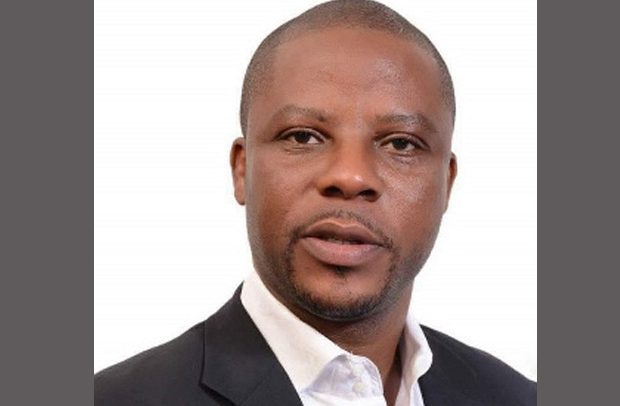Sylvester Tetteh, CEO of NYA
The National Youth Authority (NYA) on Tuesday, November 19, 2019, held a national validation workshop on the draft statement on the National Youth Policy.
The workshop was to afford stakeholders an opportunity to make further inputs on the policy before it is finalized.
The workshop, which was held at the Accra Digital Centre, brought onboard relevant stakeholders in youth development including representatives of identifiable youth groups and political parties, student leaders from all levels of education, faith-based organizations, the security agencies, civil society organizations, women groups and Persons With Disabilities (PWD) among several others to undertake this crucial exercise.
According to the CEO of the NYA, Sylvester Tetteh, his outfit is working assiduously to craft a new policy that will engender the participation of Ghanaian youth in national development as well as facilitate the realization of their dreams and aspirations.
“The process of our engagements thus far, has been highly participatory across all levels, from the information-sharing sessions, to the consultative sessions with key stakeholders at the regional and national levels, to the thematic working group sessions, to regional validation sessions of draft policy statements, to the national validation session which is being held today”.
He said in view of the fact that, in Ghana, per statistics from the Ghana Statistical Service, about 11.5 million of the country’s current population constituting 38% are within the youthful bracket, there is the need for an effective and well-thought through policy that will adequately address their peculiar needs and challenges in the face of today’s world realities. “This has necessitated the need for a regular review of Ghana’s National Youth Policy to align with not only government’s development agenda and vision but also with relevant international protocols and developmental frameworks such as the UN Sustainable Development Goals (SDGs) and Agenda 2063 of the African Union.
After today’s meeting, the final drafting of the policy statements based on the inputs from this session will be done by the consultant and the Technical Committee appointed by the NYA to collate views of key stakeholders and come out with a final draft statement on the National Youth Policy. This will then be presented to the National Youth Authority for study and onward submission to the Minister for Youth and Sports. It is expected that, all other things being equal, we will have a Reviewed National Youth Policy and an Implementation Plan by the end of 2019”, Sylvester Tetteh assured.
The CEO commended the invaluable work of the Technical Committee chaired by Evans Paa Kwesi Nkum as well as the lead-consultant, Victor Mensah, for their invaluable efforts in coming out with the draft policy statement which saw them travel to every nook and cranny of the country to directly engage and interact with key stakeholders including MMDAs, youth-focused Civil Society Organizations, Persons With Disability, political parties, the Commonwealth Secretariat, the UN System, relevant NGOs, the Business Community, Women Groups and several others.
In a speech read for him, Minister for Youth and Sports, Isaac Kwame Asiamah, acknowledged the significant strides made by government to address some of the challenges confronting the nation’s youth and reiterated President Akufo-Addo’s unwavering personal commitment to matters of youth development and general wellbeing in the country and beyond.
“The challenges of the youth are of great concern to every well-meaning Ghanaian, and so, successive governments over the years, put in place various interventions to arrest these challenges and made some gains. This notwithstanding, a lot more still needs to be done to address the concerns of the Youth”. The Minister concluded by reaffirming government’s revolve to assisting the NYA to fully implement the National Youth Policy as well as the Implementation Plan when the review process is complete.
The national validation workshop on the draft statement on the National Youth policy was highly participatory as all participants were given ample opportunity to study the draft statement which has been grouped in seven thematic areas and make their inputs based on their areas of expertise for the necessary consideration.
The seven thematic areas include Youth Economic Empowerment; Youth Health and Wellbeing; Education, Skills Development and Innovation; Youth Participation and Governance; Cross-cutting and Mainstreaming; Institutional Framework and Youth Development; and well as Major Youth Development Programmes.


